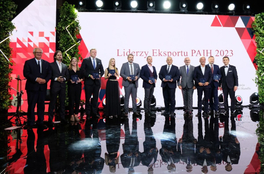Benefits of Trade Liberalization with Vietnam - EVFTA comes into force
Vietnam is not one of Poland's key trading partners, but due to its economic potential, the Ministry of Development has classified it as a promising market for Polish businesses. So far, our export hits to Vietnam have been, fish fillets, medicines and dairy products. The value of the sales of goods from Poland to Vietnam reached PLN 1 billion in 2017, and in 2019 it exceeded PLN 1.3 billion. It is however, the EU's second largest trading partner, among the Association of Southeast Asian Nations (ASEAN) countries, after Singapore. The value of trade in goods between the EU and Vietnam amounts to almost EUR 50 billion a year, and in the case of services, this amount is almost EUR 4 billion. On June 30, 2019, the European Union and Vietnam signed a Free Trade Agreement (EVFTA) in Hanoi, which will ultimately remove over 99% of customs duties on EU and Vietnamese goods. This document became effective, as of August 1, 2020.
The minimization of barriers and bureaucracy
- The agreement, which entered into force, is a landmark for the EU's economic relations with third countries. This is the second, after the one with Singapore, agreement to liberalize trade in goods with a member of ASEAN. With the entry into force of the agreement, Vietnam will remove 65 % of import duties on goods from the EU, the rest will gradually be eliminated over a period of 10 years - says Piotr Harasimowicz, head of the Foreign Trade Office of the Polish Investment and Trade Agency in Ho Chi Minh. The deal offers businesses on both sides more options, he explains, by removing tariffs, reducing regulatory barriers and bureaucracy, ensuring protection for geographical indications, opening up services and the public procurement market, and ensuring that the agreed rules are workable. The head of the PAIH office in Vietnam, explains that the pharmaceutical, agricultural/food, machinery and automotive sectors will benefit most from trade liberalization.
Nearly half of all pharmaceutical products, from the EU will be exempt from 8% customs duties immediately after the agreement enters into force, the rest after 7 years. In turn, customs duties on beef will be eliminated after 3 years, while on dairy products after a maximum of 5 years, and on processed food products after 7 years. Wines and spirits, which are currently quite heavily burdened by tax (rates up to 48-50%), will not be taxed after 7 years from the implementation of the agreement. However, when it comes to beer tax exemption will come in effect, after 10 years. Importantly, with the entry into force of the contract, almost all machines and devices will be exempt from 35% customs duties, and the 78% rate on cars will also drop to zero - says Piotr Harasimowicz from the PAIH Foreign Trade Office in Ho Chi Minh.
Access to public procurement and the service market
The head of the Agency’s Vietnamese trade office, also emphasizes that the EVFTA agreement opens the Vietnamese public procurement market for all EU companies, including those from Poland. - According to the provisions of the agreement, Polish entrepreneurs will be able to participate in tenders announced by entities such as the central administration (including the implementation of infrastructure investments), the cities of Hanoi and Ho Chi Minh City and the largest state-owned enterprises - explains Piotr Harasimowicz. He further notes, that the agreement provides easier access to the Vietnamese postal and courier services, banking and insurance services, as well as maritime service.
Impact of the pandemic and investment protection
In the first half of 2020, Vietnam saw a 1.81% increase in GDP - the lowest since 2011. The government estimates that economic growth will slow down to 3-4% this year, while in 2019 it was most likely 7%. - Interestingly, due to the COVID-19 pandemic, the price of corporate shares and assets has suddenly dropped, which may pave the way for foreign investors to increase their acquisitions of domestic companies. It is worth noting that in February, the Vietnamese Parliament voted for an investment protection agreement, which is a component of the EVFTA agreement - explains the head of the PAIH office in Vietnam. As Piotr Harasimowicz adds, the investment protection agreement provides for the establishment of a system of investment courts, with independent judges at the forefront, to resolve disputes between investors from EU countries and the government of Vietnam.
The head of the Vietnamese PAIH office ensures that the Agency keeps entrepreneurs informed about the practical aspects of the EVFTA agreement. One of the tools that has been prepared, is a free webinar that will take place in September.
About the Polish Investment and Trade Agency
The Polish Investment and Trade Agency (PAIH) is an advisory institution that is part of the Polish Development Fund Group (PFR). It is the first point of contact for exporters and investors. It operates both in Poland and through its Foreign Trade Offices (ZBH) all over the world. It strengthens the recognition of Polish brands on international markets, promotes domestic products and services as well as technological solutions that are “made in Poland”. The agency helps entrepreneurs choose their optimal expansion path abroad. It also supports the inflow of direct foreign investments to Poland and the implementation of Polish investments at home.









